Navigating zoning laws, permits, and inspections can be confusing because the rules often follow state guidelines but also vary from one town or city to another. Fortunately, partnering with Heck Residential for your home improvement project means that we’ll handle those details with expertise.
When and Why Are Permits Required?
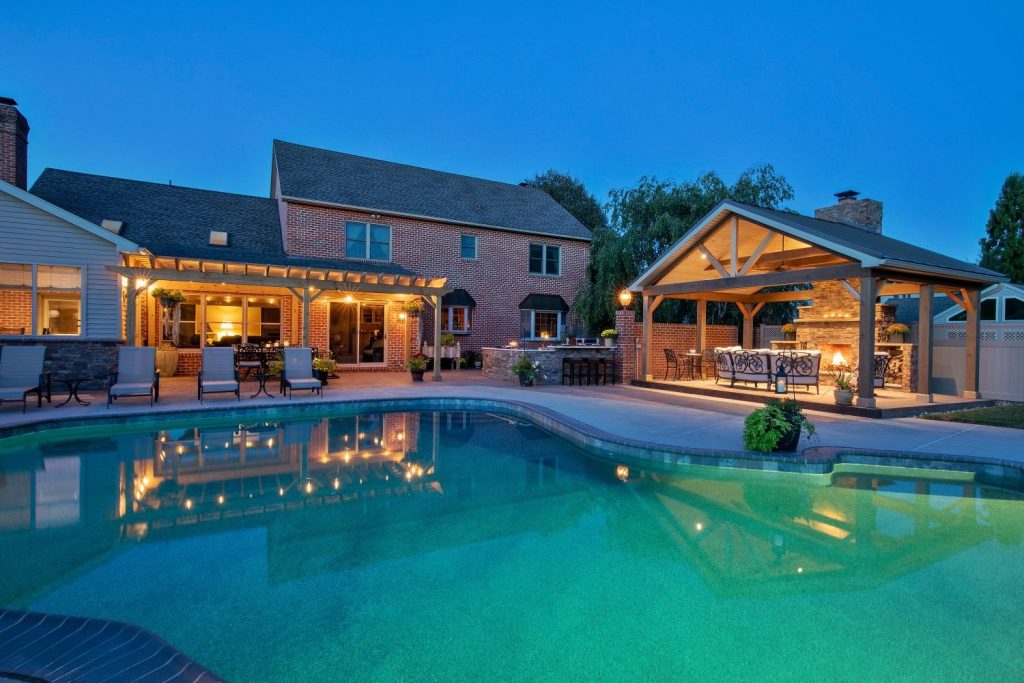
Two types of permits may be needed for your home renovation project: a zoning permit and a building permit.
Zoning permits are issued by your local municipality (city, township, or borough) to ensure that your project complies with local zoning laws. These laws divide land into zones—such as residential, commercial, industrial, or agricultural—and regulate how land in each zone can be used. If required, a zoning permit usually must be obtained before applying for a building permit.
Building permits are official approvals that allow you to move forward with construction based on submitted plans. They confirm that your project meets safety, structural, and code requirements.
In Pennsylvania, a Uniform Construction Code (UCC) building permit is generally required for most residential construction projects. Projects that typically DO require a permit in Pennsylvania:
- Structural Changes:
- Cutting away a wall, partition, or portion of a wall that is load-bearing
- Removal or cutting of any structural beam or load-bearing support
- Additions to an existing house (including garages, porches, sunrooms)
- Finishing a basement
- Constructing new stories on top of an existing house
- Increasing the perimeter of the existing house
- Enclosing a porch or patio
- Decks where any portion of the walking surface is higher than 30 inches from the finished grade, or any deck with a roof/covering above it, regardless of height
- Retaining walls higher than 4 feet (measured from the lowest grade to the top of the wall) unless it’s not supporting a surcharge
- Fences higher than 6 feet
- Changes to Major Systems:
- Addition to, alteration of, replacement, or relocation of any water supply, sewer, drainage, gas, soil, waste, vent, or similar piping
- Addition to, alteration of, or replacement or relocation of any electrical wiring (beyond minor repairs like replacing a switch or receptacle)
- Addition to, alteration of, or replacement or relocation of any mechanical equipment (e.g., new furnace, AC unit, water heater, if it involves changes to the system)
- Installing or constructing an indoor or outdoor hot tub, spa, or swimming pool (in-ground or any pool with a water depth of 24 inches or more).
- Changes to Egress/Safety:
- Removal or change of any required means of egress (exit door, stairs, handrails, guard systems, ramps), or rearrangement of parts of a structure affecting egress requirements.
- Installation of smoke detectors or carbon monoxide detectors if part of a larger project that requires a permit.
- New Construction/Major Alterations:
- Building a new one- or two-family home
- Demolishing or moving a structure
- Changing the occupancy of a structure (e.g., from residential to commercial)
- Installing new manufactured or modular homes
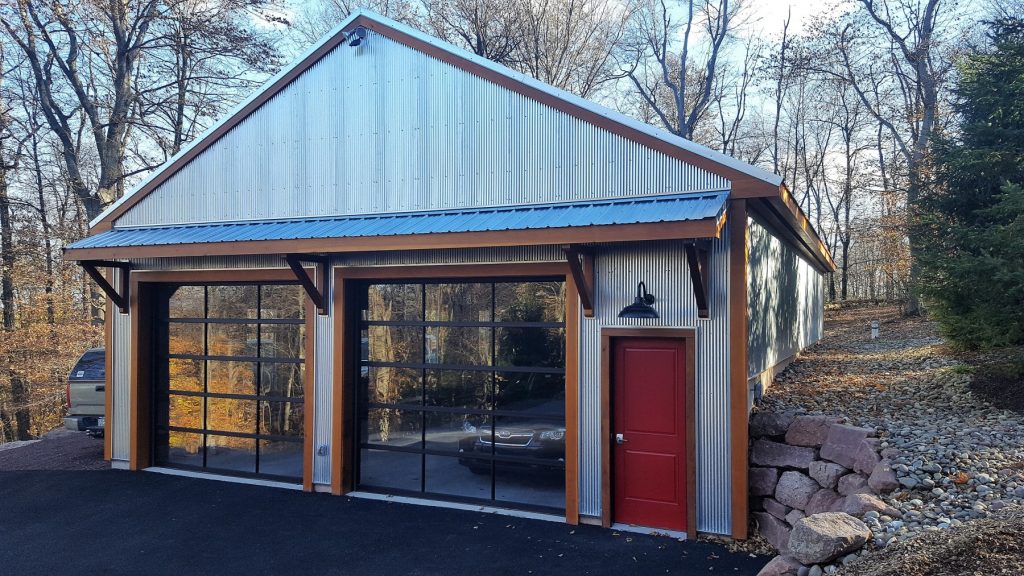
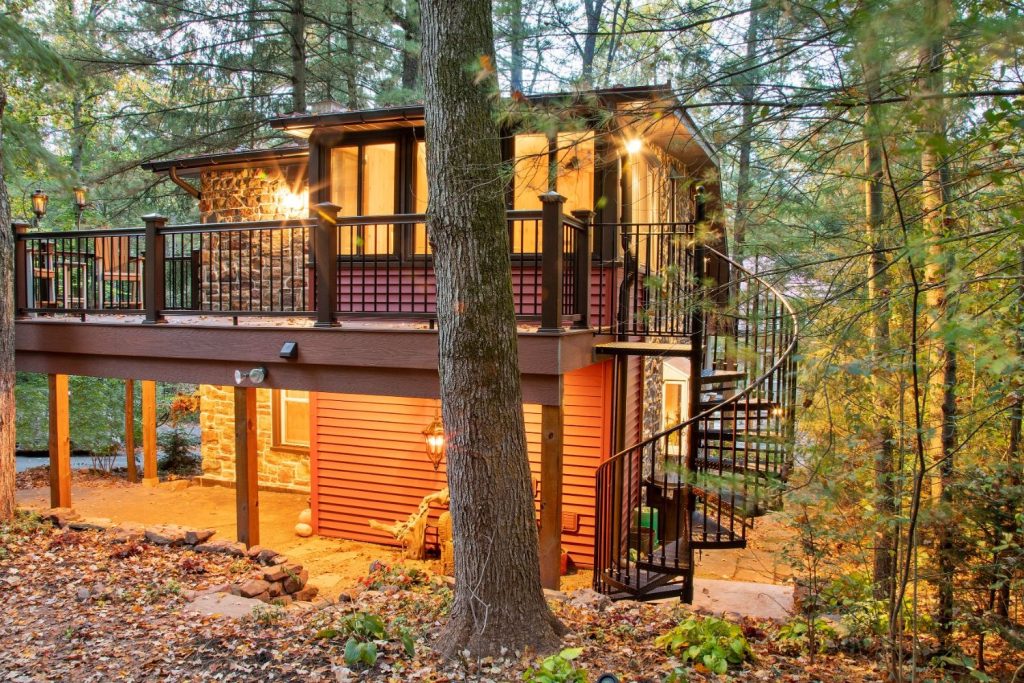

Projects that typically DO NOT require a permit (considered “ordinary repairs” or minor work), as long as they don’t involve structural changes or alterations to regulated systems:
- Cosmetic/Finishing Work:
- Painting, wallpapering
- Tiling, carpeting, flooring
- Installing cabinets or countertops
- Replacing existing roof material that does not exceed 25% of the total roof area performed within any 12-month period
- Replacing existing siding
- Replacing glass in a window or door (if replacement glass meets code)
- Minor Replacements (like-for-like, no system changes):
- Replacing a window, door, or garage door if there’s no new opening created
- Installing or replacing a storm window or storm door with no new opening
- Replacing existing roof material (up to 25% of total area)
- Repair or replacement of a porch or stoop that does not support a roof
- Installing additional roll or batt insulation.
- Replacing exterior rainwater gutters and leaders
- Minor electrical work like replacing lamps, connecting approved portable equipment to existing receptacles, or minor replacement of a receptacle, switch, or lighting fixture (check specific voltage/amp limits with your local municipality)
- Repair of leaks or clearance of stoppages in plumbing, replacing faucets or working parts of faucets, replacing traps, replacing a water closet, lavatory, or kitchen sink (if pipes/valves are not replaced or rearranged)
- Replacement of motors, pumps, and fans of the same capacity for HVAC, or repair/replacement of heating/cooling elements that don’t require rearrangement of the piping system.
- Replacement of kitchen range hoods or clothes dryers if there’s no change in fuel type, location, or electrical requirements
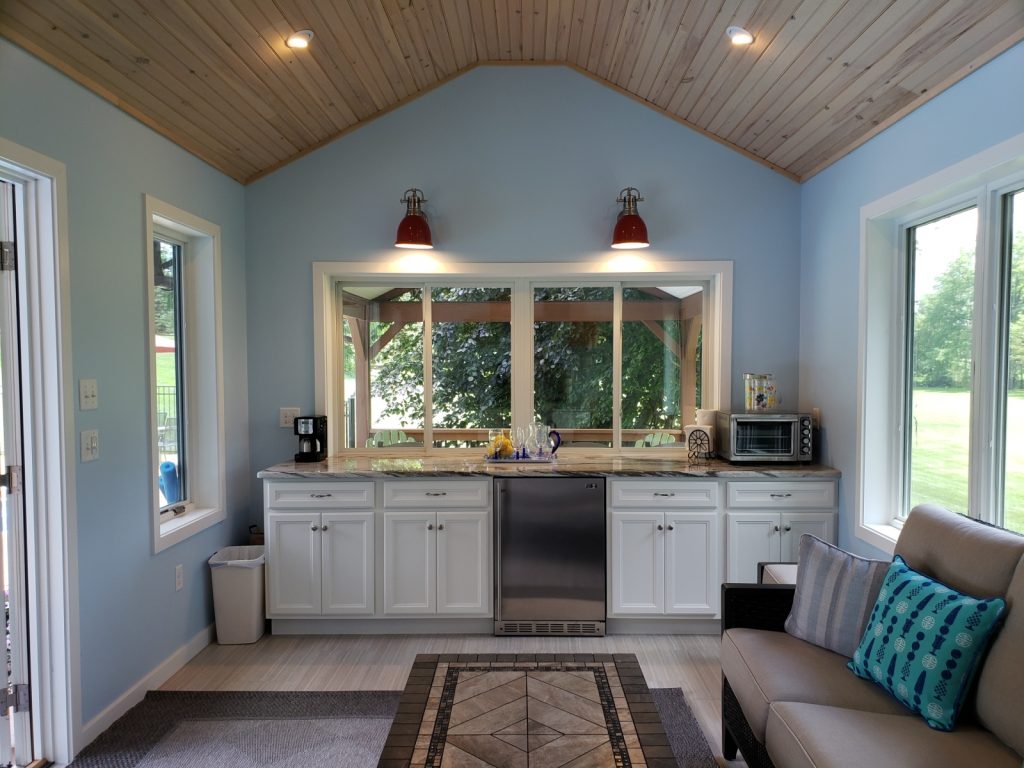

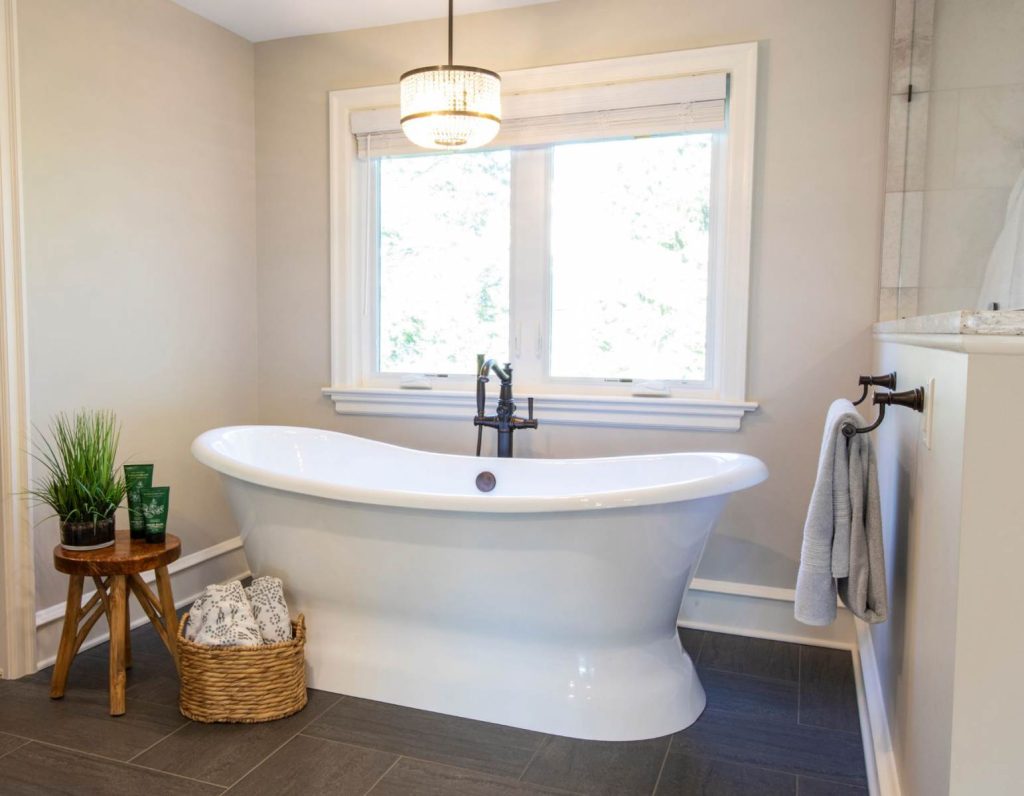
Consequences of Not Obtaining a Permit
Whether you’re tackling a home improvement project on your own or having the work done by someone else, don’t skip the permitting process. It is always best to check with your local municipality to learn if any permits are required. Doing work that requires a permit without one can lead to problems down the road:
- Stop-work orders: The municipality can halt your project.
- Fines and penalties: You could face substantial daily fines.
- Forced demolition and reconstruction: You might be required to tear out work and rebuild it to code, or even remove the structure entirely.
- Resale difficulties: When you sell your home, unpermitted work can be a red flag for buyers, inspectors, and mortgage lenders, potentially impacting your ability to sell or reducing the property’s value.
- Safety hazards: Permits and inspections are in place to ensure the safety of your home and its occupants. Unpermitted work may not meet safety standards.
When in doubt, get the permit. It’s always better to be safe and compliant than to face legal and financial repercussions down the road.
Stay Compliant With Heck Residential
We don’t take short cuts with home renovation projects. We want our clients to stay excited, worry less, and enjoy the home improvement process, while staying compliant with their municipality’s permitting laws.
Let’s talk about what’s on your home improvement wishlist. Call us today!
